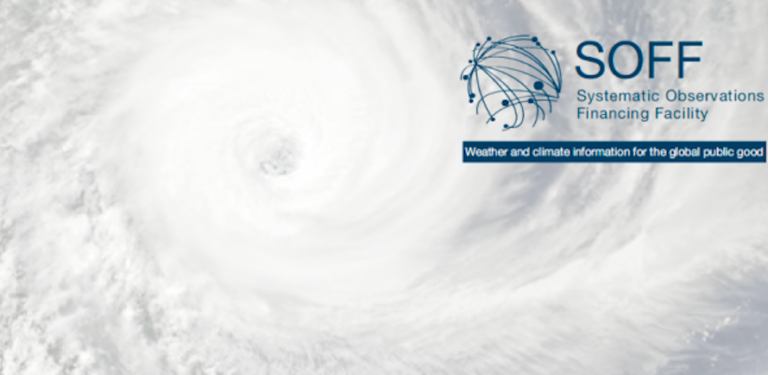The World Meteorological Organization (WMO) held the second funders’ forum of the Systematic Observations Financing Facility (SOFF) on June 28 to advance discussions on its timeline, costs and benefits.
The event, which attracted more than 100 participants, representing 28 potential funders and 21 observer institutions, addressed the key issues and discussions that arose in the first funders’ forum held in March 2021.
The second forum focused on clarifying the critical role of observations in the meteorological value chain and the SOFF value proposition; the proposed institutional and operational arrangements; and the roadmap to COP26 and beyond.
SOFF is an innovative financing mechanism which is being developed with support from the international community. It seeks to provide technical and financial assistance to developing countries to generate and exchange basic observational data, which underpin all weather and climate prediction and early warnings.
WMO and the members of the Alliance for Hydromet Development are committed to establishing SOFF, which will prioritize least developed countries (LDCs) and small islands developing states (SIDS). According to the WMO, these are the countries with the most serious shortfalls in observations and this has knock-on effects for the rest of the globe as it undermines the quality and reliability of global forecasts.
“By providing financial support to LDCs and SIDS not only for capital investments but also for operations and maintenance, the Systematic Observations Financing Facility will ensure the benefits of investments in observational capacity are sustained. It brings together major development and climate finance partners to close the capacity gap on high-quality weather forecasts, early warning systems and climate information,” Jamaican Prime Minister Andrew Holness said in a video message.
The international development community has been concerned about the lack of surface-based observations for decades, and therefore WMO members have committed to establishing the Global Basic Observing Network (GBON) to address the problem of missing observations. The potential benefits directly enabled by the full implementation of GBON, via its implementation in countries with the largest current data gaps, are estimated to exceed US$5bn per year.
SOFF requires US$400m of financing over an initial five-year implementation period to progressively achieve and sustain GBON compliance in all 67 SIDS and LDCs and offer readiness phase support to other eligible countries. After the initial five-year implementation period, sustaining GBON in SIDS and LDCs and its international data exchange over time is expected to require US$50m per year.
The aim is to announce the creation of SOFF at COP26 in November and to be “open for business” by mid-2022.



